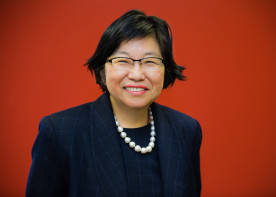What is an EB-11 Visa and How Can I Qualify | Ohio
Marisela J. Marquez
I want to talk to you about the EB-11 or Extraordinary Abilities Visa. The EB-11 Visa is available to any immigrant who can demonstrate that they are at the top of the field of endeavor, and have extraordinary abilities in almost any profession or career. There are two ways to prove that you have extraordinary ability.
The first is to demonstrate that you have received a major internationally recognized award in the field such as the Nobel Prize. The second is to provide evidence that meet at least three out of ten criteria set forth by immigration regulations such as having judged the work of others in the field, authored scholarly publications, or produced an original contribution of major significance to the field. An immigration officer will then conduct a Final Merits Determination where they consider the entire petition and determine whether or not you have achieved national or international acclaim, and that your achievements are recognized in the field.
There are many benefits to this type of immigration Visa classification. For example, EB-11s have the ability to self-petition. Meaning they do not need an employer to sponsor them. They can also bypass the burdensome labor certification process. If you think you might qualify as an individual with extraordinary ability, you should contact an experienced immigration attorney to help with this complex case. The passion of our staff can’t be beat. We share your joy and we share your tears. We understand that immigration practice is more about winning or losing cases. It’s about changing lives.
By: Marisela Marquez
I want to talk to you about the EB-11 or Extraordinary Abilities Visa. The EB-11 Visa is available to any immigrant who can demonstrate that they are at the top of the field of endeavor, and have extraordinary abilities in almost any profession or career. There are two ways to prove that you have extraordinary ability.
The first is to demonstrate that you have received a major internationally recognized award in the field such as the Nobel Prize. The second is to provide evidence that meet at least three out of ten criteria set forth by immigration regulations such as having judged the work of others in the field, authored scholarly publications, or produced an original contribution of major significance to the field. An immigration officer will then conduct a Final Merits Determination where they consider the entire petition and determine whether or not you have achieved national or international acclaim, and that your achievements are recognized in the field.
There are many benefits to this type of immigration Visa classification. For example, EB-11s have the ability to self-petition. Meaning they do not need an employer to sponsor them. They can also bypass the burdensome labor certification process. If you think you might qualify as an individual with extraordinary ability, you should contact an experienced immigration attorney to help with this complex case. The passion of our staff can’t be beat. We share your joy and we share your tears. We understand that immigration practice is more about winning or losing cases. It’s about changing lives.
By: Marisela Marquez



